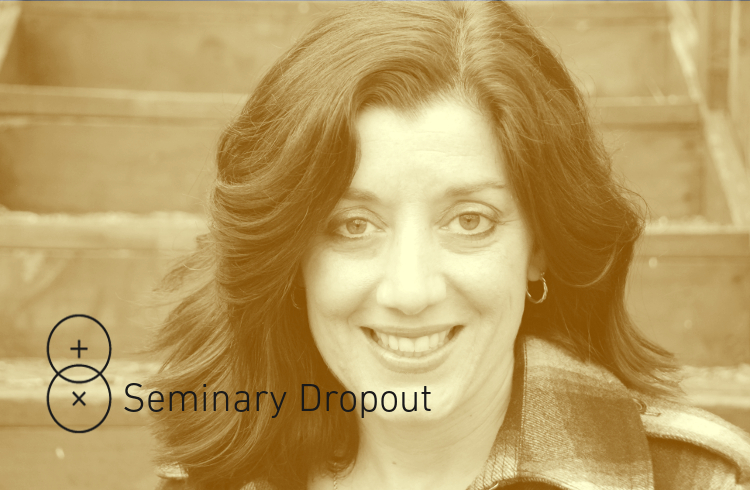
Our Sponsor:

Sponsor a Child — At Compassion we take a committed, long-term approach to fighting child poverty. Our Holistic Child Development Model is made up of four comprehensive programs investing in children from the beginning of their lives until they’ve reached adulthood, and covering everything from prenatal care to university-level education.
This Week on Seminary Dropout…
Michelle Ferrigno Warren is the advocacy and policy engagement director for the Christian Community Development Association. She is an immigration, education, and human service policy specialist and is an adjunct faculty member at Denver Seminary. With over twenty years experience working in Christian community development, Michelle is a part of the national Evangelical Immigration Table and helps consult for the National Immigration Forum. She is a founding staff member of Open Door Ministries, a large community development corporation. Michelle, her husband, David, and their three children live in an immigrant neighborhood in Denver, Colorado.
Noel Castellanos has worked in full-time ministry in Latino, urban communities since 1982, serving in youth ministry, church planting, advocacy and community development in San Francisco, San Jose and Chicago. He is chief executive officer of Christian Community Development Association (CCDA) and was the founding pastor of Chicago’s La Villita Community Church. In addition to being a popular speaker, Castellanos mentors young leaders across the United States and directs the CCDA Institute, training emerging leaders in the Christian Community Development philosophy. He was appointed to serve on President Obama’s Council for Faith and Neighborhood Partnerships and has served as the chaplain for the Chicago Cubs. He has a deep passion to serve and invest in the lives of leaders committed to serving the poor. Noel is the coauthor of A Heart for the Community and New Models for Urban and Suburban Ministry and has contributed to various other books and publications including Deep Justice in a Broken World, A Heart for the City, and Crazy Enough to Care. He and his wife, Marianne, have three children and make their home in the barrio of La Villita in Chicago.
We can see evidence of injustice all around us, whether in continuing incidents of racial inequality or in the systemic forces that disenfranchise people and perpetuate poverty. It’s important to learn about the world’s inequities and to be a voice for the voiceless any way we can. But in an age of hashtag and armchair activism, merely raising awareness about injustice is not enough.
Michelle Warren knows what is needed. She and her family have chosen to live in communities where they are “proximate to the pain of the poor.” This makes all the difference in facing and overcoming injustice. When we build relationships where we live, we discover the complexities of standing with the vulnerable and the commitment needed for long-term change.
Proximity changes our perspective, compels our response, and keeps us committed to the journey of pursuing justice for all. Move beyond awareness and experience the power of proximity. -From the Publisher
If you liked this episode then you might also like…



Missio Alliance Comment Policy
The Missio Alliance Writing Collectives exist as a ministry of writing to resource theological practitioners for mission. From our Leading Voices to our regular Writing Team and those invited to publish with us as Community Voices, we are creating a space for thoughtful engagement of critical issues and questions facing the North American Church in God’s mission. This sort of thoughtful engagement is something that we seek to engender not only in our publishing, but in conversations that unfold as a result in the comment section of our articles.
Unfortunately, because of the relational distance introduced by online communication, “thoughtful engagement” and “comment sections” seldom go hand in hand. At the same time, censorship of comments by those who disagree with points made by authors, whose anger or limited perspective taints their words, or who simply feel the need to express their own opinion on a topic without any meaningful engagement with the article or comment in question can mask an important window into the true state of Christian discourse. As such, Missio Alliance sets forth the following suggestions for those who wish to engage in conversation around our writing:
1. Seek to understand the author’s intent.
If you disagree with something the an author said, consider framing your response as, “I hear you as saying _________. Am I understanding you correctly? If so, here’s why I disagree. _____________.
2. Seek to make your own voice heard.
We deeply desire and value the voice and perspective of our readers. However you may react to an article we publish or a fellow commenter, we encourage you to set forth that reaction is the most constructive way possible. Use your voice and perspective to move conversation forward rather than shut it down.
3. Share your story.
One of our favorite tenants is that “an enemy is someone whose story we haven’t heard.” Very often disagreements and rants are the result of people talking past rather than to one another. Everyone’s perspective is intimately bound up with their own stories – their contexts and experiences. We encourage you to couch your comments in whatever aspect of your own story might help others understand where you are coming from.
In view of those suggestions for shaping conversation on our site and in an effort to curate a hospitable space of open conversation, Missio Alliance may delete comments and/or ban users who show no regard for constructive engagement, especially those whose comments are easily construed as trolling, threatening, or abusive.